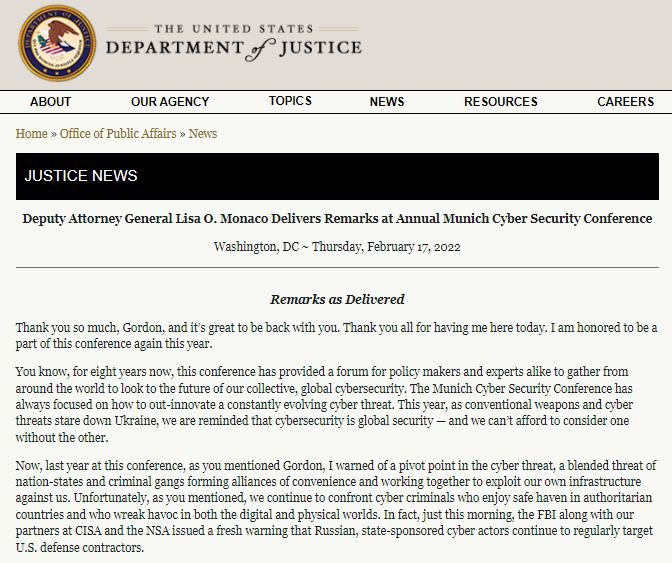Lisa Monaco, deputy attorney general of the Department of Justice (DOJ), recently shared the new policies with which U.S. authorities will address cybercriminal incidents, which involve an analysis protocol to determine if disruptive measures can be applied against cybersecurity threats, even if these measures may jeopardize an investigation.
These measures would be implemented if the DOJ believes that this work is possible to reduce the risks to victims. The prosecutor mentioned that among the potentially applicable measures is the delivery of ransomware keys or the seizure of servers used in hacking campaigns.

Monaco also mentions that import sanctions could be applied in certain cases, adding that foreign state and commercial actors will be able to express their views on the measures to be taken in each case, in collaboration with the U.S. Cyber Command and other government agencies.
During his message, Monaco also endorsed that the fight against cybercrime will continue to be one of the DOJ’s priorities, so these tactics are a necessary element, especially when threat actors seek safe haven in countries opposed to the US regime. An example of this practice is ransomware operations, which typically operate from countries without an extradition treaty with the U.S.
The message also refers to an International Virtual Currency Initiative, which the DOJ hopes will facilitate collaboration between law enforcement agencies internationally, allowing the tracking of cryptocurrency assets or wallets on the blockchain, an especially complex process that gives threat actors an advantage when evading authorities.
This initiative will have cryptocurrency experts in intelligence centers for better blockchain analysis, virtual asset tracking and seizure work. At the moment, this research center is expected to work with a dozen prosecutors and begin operations in the coming weeks in charge of the renowned cybercrime specialist Eun Young Choi.
To learn more about information security risks, malware variants, vulnerabilities and information technologies, feel free to access the International Institute of Cyber Security (IICS) websites.
He is a cyber security and malware researcher. He studied Computer Science and started working as a cyber security analyst in 2006. He is actively working as an cyber security investigator. He also worked for different security companies. His everyday job includes researching about new cyber security incidents. Also he has deep level of knowledge in enterprise security implementation.
